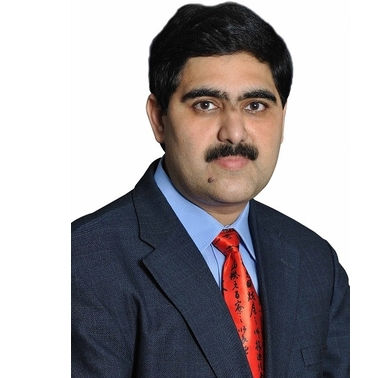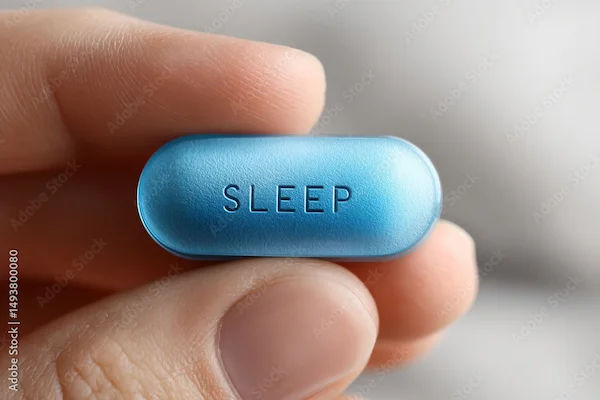REM vs. Non-REM Sleep Nightmares: What You Need To Know
Learn the differences between REM and Non-REM sleep nightmares. Understand how these sleep stages impact nightmares and how to manage them for better rest.

Written by Dr.Sonia Bhatt
Last updated on 3rd Jul, 2025

Introduction
Sleep is vital for mental and physical well-being, yet many people struggle with nightmares that can disturb the quality of their rest. Nightmares, especially frequent ones, can leave individuals feeling anxious and exhausted, affecting both emotional health and sleep patterns. Understanding the science behind nightmares—particularly those that occur during REM and non-REM sleep—can help illuminate the reasons behind them and offer ways to manage and reduce their impact.
In this article, we’ll delve into the differences between REM (Rapid Eye Movement) and Non-REM sleep, the role each sleep stage plays in dreaming, and why nightmares can occur during these phases. We’ll also provide practical tips on improving sleep quality and reducing nightmares, especially for those who experience them regularly.
What is REM and Non-REM Sleep?
Before diving into how nightmares affect REM and non-REM sleep, it’s essential to understand what these two types of sleep entail and why they’re both crucial for overall health.
Non-REM Sleep: This is the phase where the body gets the most restorative rest. It consists of three stages:
Stage 1: A light sleep stage where your body transitions from wakefulness to sleep.
Stage 2: A deeper sleep stage where your body temperature drops, and heart rate slows down. This is a stage of light sleep but more stable than Stage 1.
Stage 3: The deepest and most restorative stage of non-REM sleep, also known as slow-wave sleep. This is the stage where your body repairs tissues, builds bone and muscle, and strengthens the immune system.
REM Sleep: REM sleep is the stage where most vivid dreams and nightmares occur. This phase is characterised by rapid eye movement, increased brain activity, and irregular breathing. Although your muscles are temporarily paralysed during REM sleep to prevent you from physically acting out your dreams, your brain is highly active, processing memories, emotions, and information. This phase of sleep plays an essential role in emotional regulation, memory consolidation, and brain function.
Each sleep cycle alternates between REM and non-REM sleep stages throughout the night, with REM periods becoming longer as the night progresses.
Nightmares: What Are They and Why Do They Happen?
Nightmares are vivid, unsettling dreams that often cause emotional distress such as fear, anxiety, sadness, or anger. They are distinct from regular dreams because of their intensity and their tendency to disrupt sleep. While nightmares can happen during both REM and non-REM sleep, they are most commonly associated with REM sleep due to the intensity of brain activity during this phase.
In REM sleep, the brain is highly active, processing emotions, memories, and unresolved psychological issues. This is where nightmares often occur, especially when individuals are dealing with stress, anxiety, or past trauma. For example, those with post-traumatic stress disorder (PTSD) may experience nightmares related to their traumatic experiences.
However, nightmares can also happen during non-REM sleep, although these are generally less common. When nightmares occur in non-REM sleep, they are usually linked to the deeper stages of the cycle (Stage 3), where physical rest and emotional processing are key.
REM Sleep Nightmares: Why They Are So Vivid
REM sleep is when your brain is most active, and it’s also the stage of sleep associated with vivid dreaming. It is not just that dreams happen during REM sleep—these dreams can be incredibly intense, emotional, and sometimes unsettling.
Several factors contribute to why nightmares in REM sleep are so vivid:
Emotional Processing: During REM sleep, the brain processes emotions, stress, and experiences. If you have unresolved fears, anxieties, or traumatic memories, these emotions can surface in your dreams, causing nightmares. Your brain might replay distressing events or exaggerate fears, creating nightmares that evoke strong feelings of terror or helplessness.
Heightened Brain Activity: REM sleep is a period of intense brain activity. Neurons are firing rapidly, and the brain is processing new information and consolidating memories. This hyperactivity can lead to more dramatic and intense dreams, including nightmares.
Memory Consolidation: REM sleep helps consolidate memories from the day, sorting through both positive and negative emotions. If you are feeling particularly stressed or anxious in your waking life, these emotions can be amplified in dreams, often resulting in a nightmare. It’s as if your brain is trying to make sense of your emotions or unresolved issues.
Physical Paralysis: During REM sleep, your body experiences a natural paralysis (known as REM atonia) to prevent you from acting out your dreams. This may create a sense of vulnerability or helplessness in the dream, especially if the nightmare involves being chased or attacked, leading to an increased emotional response upon waking.
Non-REM Sleep Nightmares: What Happens During Deep Sleep?
While REM sleep is typically the stage most associated with nightmares, it is also possible to experience frightening dreams during non-REM sleep. Nightmares that occur during non-REM sleep are often more disturbing in their physical manifestations and are usually more fragmented, lacking the vivid narratives typical of REM nightmares.
One example of a nightmare that occurs during non-REM sleep is sleep terrors, which are particularly common in children but can affect adults as well. Sleep terrors usually occur during the deepest stage of non-REM sleep (Stage 3). These episodes are characterised by sudden waking, intense fear, screaming, confusion, and sometimes even violent movements. Unlike REM nightmares, sleep terrors are often difficult to remember, and the person may not be fully aware of what’s happening.
Why Do Non-REM Nightmares Happen?
Sleep Deprivation: Lack of sleep or disrupted sleep patterns can contribute to sleep terrors and nightmares in non-REM sleep. Sleep deprivation prevents the body from reaching the deeper, more restorative stages of sleep, making it more likely for disturbances to occur.
Stress and Anxiety: Just like in REM sleep, stress and anxiety can influence sleep quality and lead to disturbing dreams or episodes of sleep terror. When the body is under stress, it can affect the way sleep cycles unfold, increasing the likelihood of nightmares during non-REM stages.
Sleep Disorders: Conditions such as sleep apnea, narcolepsy, or restless leg syndrome can disrupt the natural flow of sleep, resulting in episodes of non-REM nightmares or sleep terrors. These conditions may also affect the quality of restorative sleep, leading to increased occurrences of nightmares.
How to Reduce Nightmares During REM and Non-REM Sleep
While nightmares can be distressing, there are several strategies you can employ to reduce their frequency and improve overall sleep quality.
Practice Relaxation Techniques: Engaging in relaxation techniques before bed, such as deep breathing exercises, meditation, or progressive muscle relaxation, can help calm the mind and reduce anxiety, which may, in turn, reduce nightmares. Regular practice of relaxation techniques can also improve sleep quality and help you reach deeper, more restful stages of sleep.
Maintain a Consistent Sleep Schedule: Going to bed and waking up at the same time every day helps regulate your sleep cycle, improving the chances of experiencing restful and uninterrupted sleep. Consistency is especially important for managing nightmares, as it supports a healthy balance between REM and non-REM sleep.
Create a Relaxing Bedtime Routine: Establishing a calming pre-sleep routine can signal your brain that it’s time to wind down and prepare for sleep. Avoiding stimulating activities, like watching TV or scrolling through your phone, before bed can help you transition into sleep more easily and reduce the chances of disruptive nightmares.
Address Underlying Psychological Issues: If your nightmares are linked to anxiety, trauma, or unresolved emotional issues, it may be helpful to seek support from a mental health professional. Cognitive-behavioral therapy (CBT) and trauma-focused therapy can be effective tools for managing anxiety and improving the quality of your sleep.
Improve Sleep Hygiene: Ensure that your sleep environment is comfortable and conducive to rest. This includes keeping your bedroom dark, quiet, and at a cool temperature. Also, avoid caffeine, alcohol, and heavy meals close to bedtime.
Imagery Rehearsal Therapy (IRT): For those who suffer from frequent nightmares, Imagery Rehearsal Therapy (IRT) can be an effective technique. IRT involves mentally rehearsing a new, positive ending to your nightmare while awake, which can reduce the frequency and intensity of the dream over time.
Conclusion
Nightmares are an unpleasant but common sleep disturbance that can occur during both REM and non-REM sleep, albeit for different reasons. REM sleep nightmares are often linked to emotional processing and unresolved psychological stress, while non-REM nightmares (including sleep terrors) are more physically distressing and may occur during deeper sleep stages. By understanding the differences between these sleep phases and employing strategies to improve your sleep hygiene, manage stress, and address any underlying psychological concerns, you can reduce the impact of nightmares and improve the quality of your sleep.
A good night’s sleep is essential for emotional and physical well-being, and with the right steps, you can regain control of your sleep patterns and wake up feeling rested and refreshed.
Consult Top Sleep Medicine Specialist
Consult Top Sleep Medicine Specialist

Dr. Suresh G
General Physician/ Internal Medicine Specialist
25 Years • MBBS, MD
Bangalore
Apollo Clinic Bellandur, Bangalore
(225+ Patients)

Dr. Shiba Kalyan Biswal
Pulmonology Respiratory Medicine Specialist
18 Years • MBBS,MD,DM(AIIMS Delhi)
Gurugram
APOLLO SUGAR CLINICS GURUGRAM, Gurugram

Dr. Arjun Ramaswamy
Pulmonology Respiratory Medicine Specialist
9 Years • MD (RESPIRATORY MEDICINE), DM (PULMONARY MEDICINE, CRITICAL CARE AND SLEEP MEDICINE)
Mumbai
Apollo Hospitals CBD Belapur, Mumbai
(25+ Patients)
Dr Srinivas Rajagopala
Pulmonology Respiratory Medicine Specialist
20 Years • MBBS, MD (Int Med), DM (Pul & Crit Care), Fellowship in Lung Transplantation (Toronto)
Chennai
Apollo Cancer Speciality Hospital, Teynampet, Chennai

Dr. Nagarajan Ramakrishnan
Sleep Medicine Specialist
25 Years • MD, MMM, FACP, FCCP, FCCM
Chennai
Apollo Hospitals Greams Road, Chennai
(25+ Patients)




